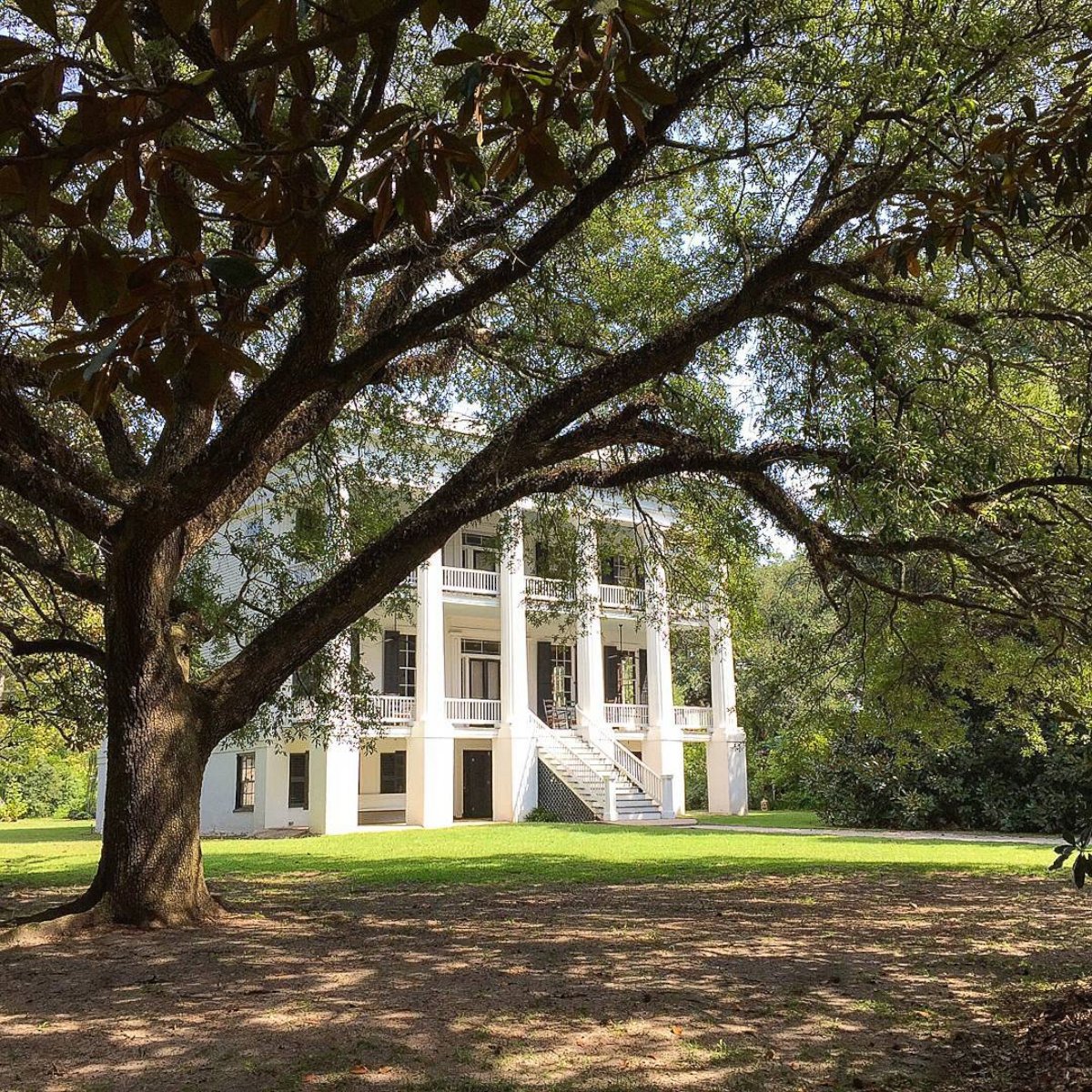Slave Descendant Unites With Plantation Owner for Heartwarming Dinner 181 Years After Families Lived There
“This was not about the past,” Nkrumah Steward told ABC News.
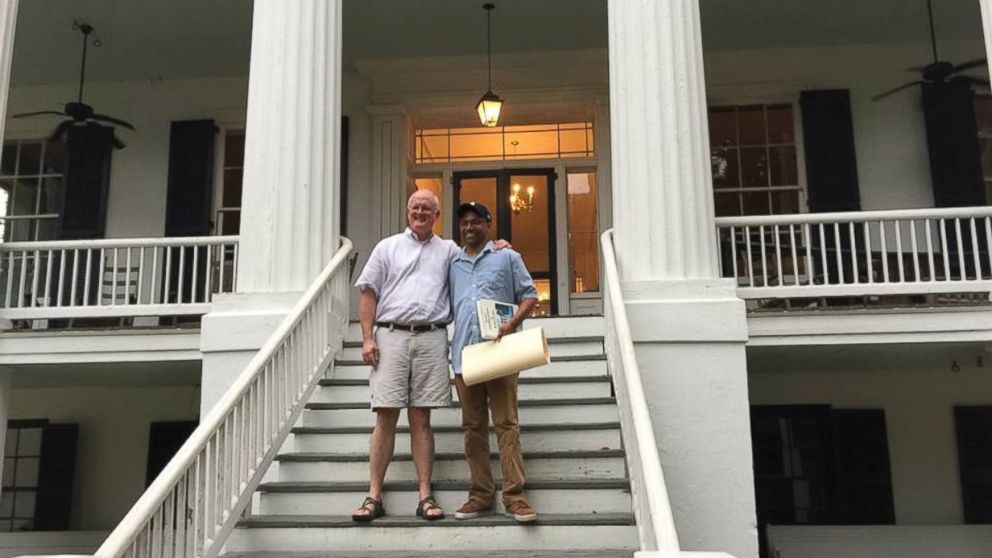
— -- It was a meeting 181 years in the making as Nkrumah Steward, a slave descendant, and Robert Adams, a plantation owner, sat down with their families to enjoy a lovely dinner on the same South Carolina property where Steward’s family was once owned.
“This was not about the past,” Steward, 44, of Canton, Michigan, told ABC News of the surreal experience. “This was not about, ‘Let’s try to fix things that we can’t ever change.’ This was about, ‘My name is Nkrumah Steward,’ and ‘My name is Robert Adams, pleasure to meet you, cousin. Let’s get to know each other.’”
The two men, one black and one white, are indeed cousins, linked by years of history that Steward has chronicled on his blog.
“Tonight my family and I were dinner guests at Wavering Place, an old plantation founded in 1768 near Hopkins, South Carolina where four generations of my grandmothers lived and worked as slaves when they were emancipated in 1865,” Steward wrote in a Facebook post that has now been shared nearly 400 times. “The reason I was there tonight was because 181 years ago, in 1835, Joel Robert Adams and my 4th great grandmother, one of his slaves, Sarah Jones Adams had a daughter, Louisa. Louisa had Octavia. Octavia had James. James had my grandfather JD. JD had my mother Linda.
“And now 181 years later, after almost two centuries, my mother and father, my two sons, my wife and myself sat down in that very house and broke bread with the descendant of those who owned members of my family,” the post continued. “We are cousins by blood. And tonight we took the first steps together towards also becoming friends.”
Steward said the response to his post has been “99.9% overwhelmingly positive, but there has been some anger from both sides, from small, small, small people that don’t understand why I even went,” he explained. “They see me smiling with my cousin, and say, ‘You forgot all the things that happened on that plantation.”
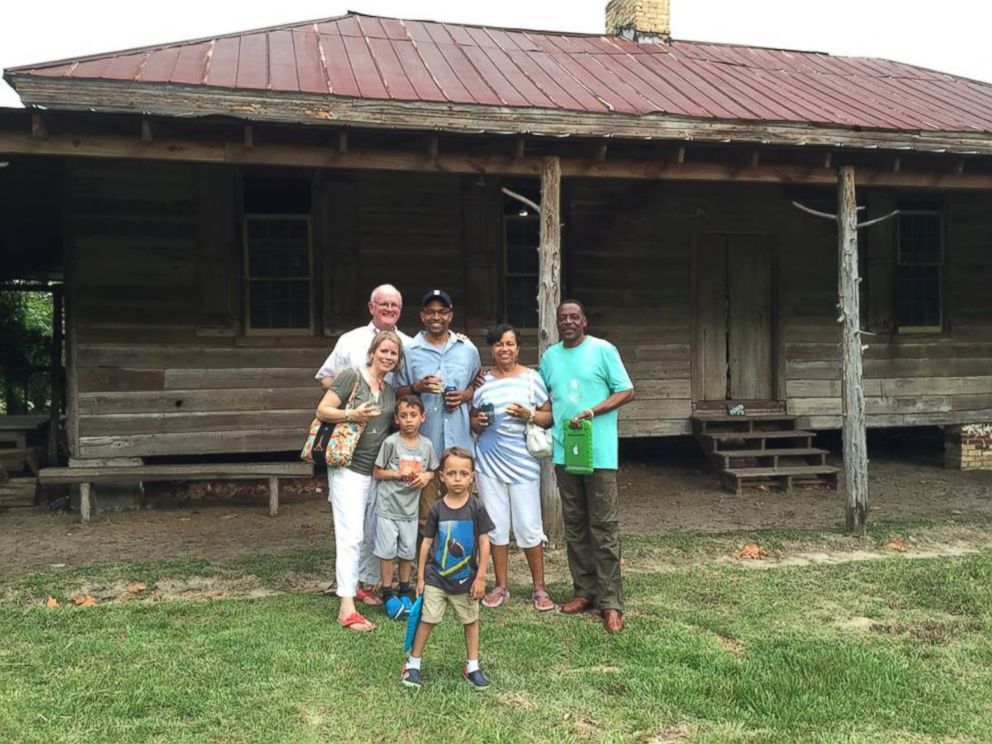
However, for the two families now coming together as one, they are focused on collectively moving forward as friends.
“Robert is a descendant of people who owned my family. He didn’t own anybody,” said Steward. “I am a descendant of slaves of that his family owned. I have never been a slave. This is about history. This is about family. There is nothing he can do or I can do that can change the fact that I have relatives who may have died on that plantation. This was about seeing a physical place that my relatives walked, regardless of the condition.”
Adams and his wife, Shana, still own his family’s plantation, which is now called Wavering Place Plantation. It has been passed down for generations since 1766 and is now open for educational tours, as well as a bed and breakfast and wedding venue. They could not have been more thrilled to hear from Steward and invite his entire family for dinner for the opportunity to learn about each other’s past.
“We thoroughly enjoyed it,” said Adams. “Our history is a shared one, and we celebrate our family connection. There’s a dark part of that history that was an unfortunate part of our nation’s past, but we don’t let that keep us from moving forward and getting to know family members.
“We had a three-hour conversation and there’s so much more to say,” he added. “That was just the tip of the iceberg. As great of an evening it was, there is so much more to unearth.”
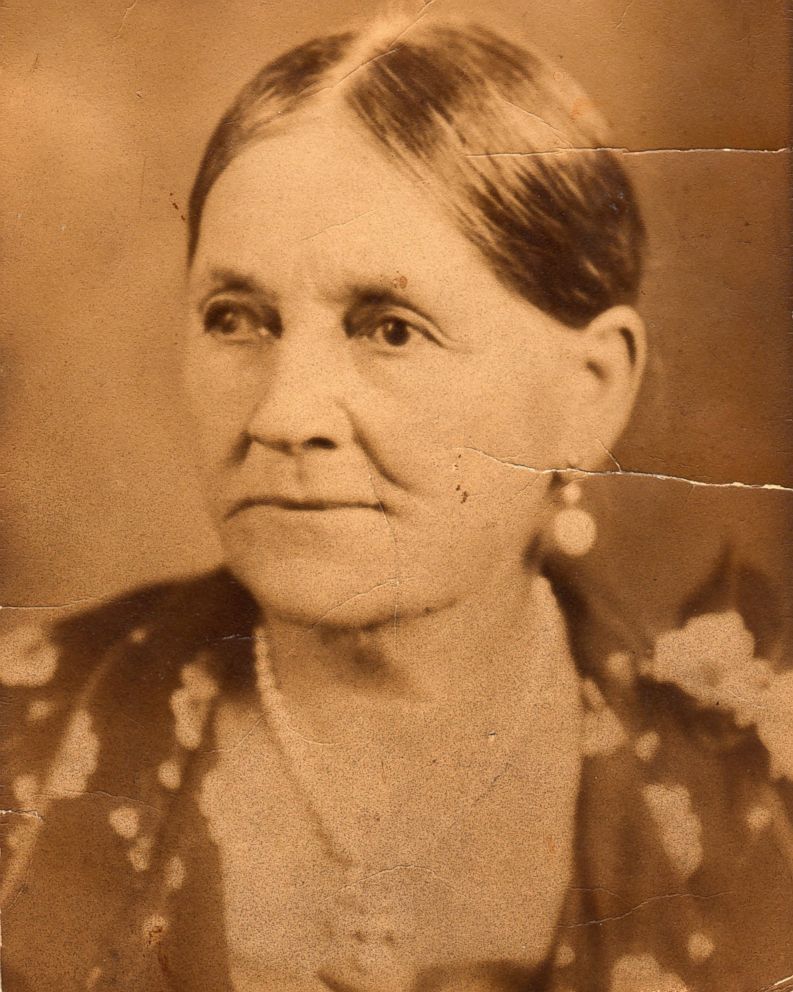
Adams referred to their meeting as having a “circle of life” feeling to it.
“Everybody understands that this history occurred and I think times are a changin’,” he explained. “People are much more interested in getting to know each other now than they were generations ago. And I think that’s a healthy thing. It’s always good to get to know new family that you didn’t know previously, and this is such an interesting story that it was a pretty remarkable meeting.”
For Steward, putting all the pieces of his family tree together came from one question he’d always ask as a small child: “Why is my great grandfather white?”
“I got into genealogy because of these trips I’d take as a kid,” the Michigan-born-and-raised man said of visiting family in Hopkins, South Carolina. “My family is all black. If you can look at us, we’re all black. But then we’d get out of our car and we’d walk up to the house in South Carolina and this white man would come out of this house and he’d say, ‘Hey, how y’all doin’?’ and give me a big hug. It was my great grandfather, James Henry, on Bluff Road.
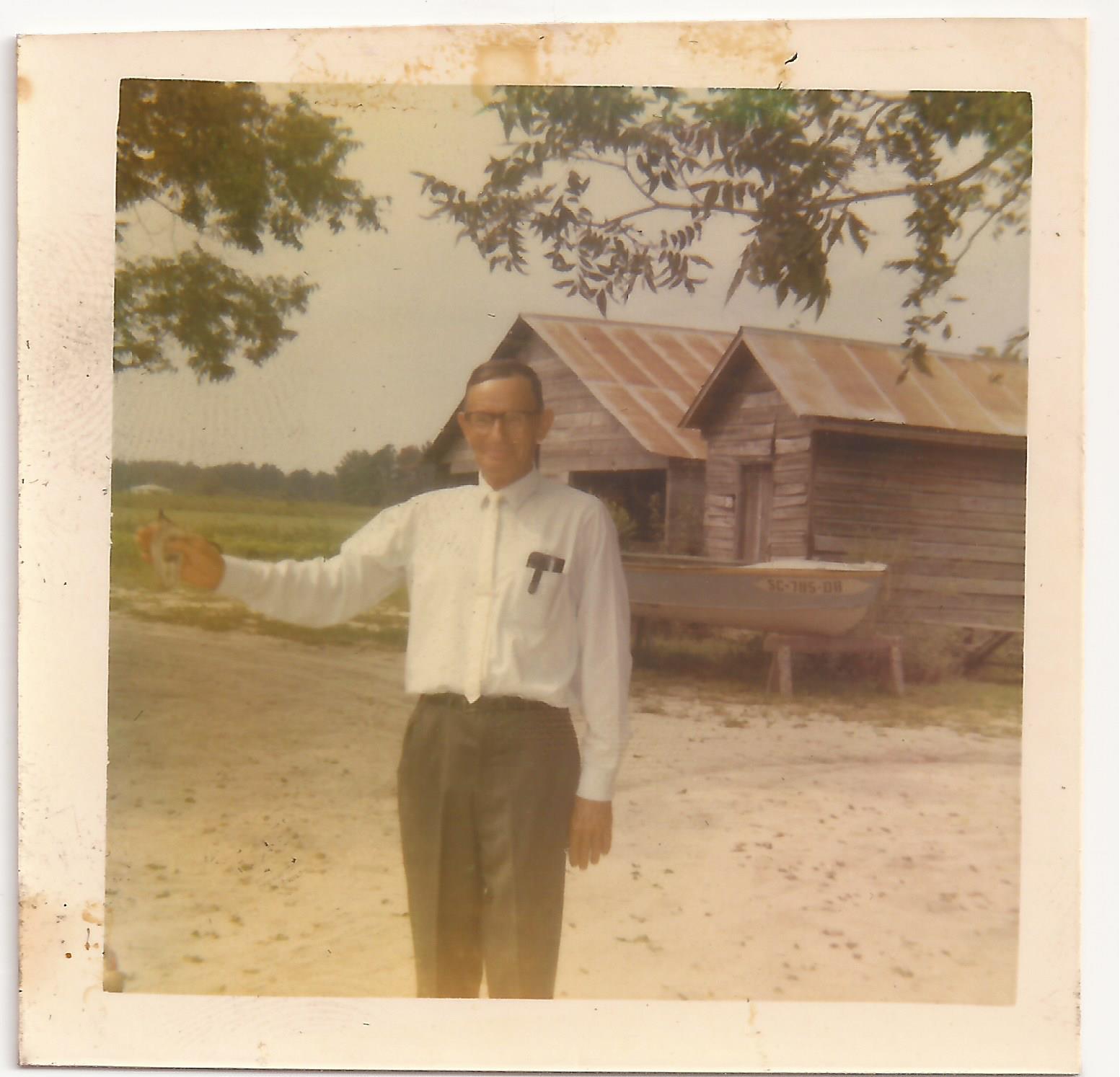
“That always stuck with me. No one else thought this was weird," he recalled. "He was white. His hair, his lips, his everything. I was thinking, ‘How does this happen? What is going on?’ I was always interested in how this happened.”
Now as an adult, Steward is cherishing the opportunity to share this all-too-common, but rarely spoken of, piece of American history with his own two children, Elijah, 5, and Henry, 3.
“My family will definitely be back,” said Steward. “There was a lot of optimism and positivity and love in the group that night. Every time I come down there I will be calling my cousin. He had a list of people he wanted me to meet.”
